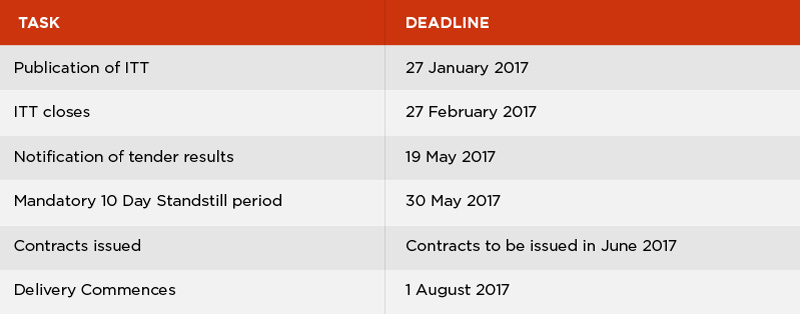The Institute for Apprenticeships has been silent on learners with learning difficulties and/or disabilities, and that’s simply not good enough, says David Harbourne
When I was still at school, I helped a partially-sighted boy practise reading. Both of us had ambitions, but he faced more challenges than I did. It was a lesson I never forgot.
I got involved in the design and delivery of modern apprenticeships in the 1990s. At every opportunity, we looked for ways to provide additional help and support to people who needed it. It’s not just about money, of course: to choose just one example from many, we found video evidence made life easier for apprentices who had difficulties writing up their portfolios.
I’m not claiming any special insights or success stories here. I take my hat off to colleges, training providers, employers and charities for finding ways to assist learners with learning difficulties and/or disabilities (LLDD). I pay tribute to successive governments and funding agencies, too, because they’ve made additional funds available to help LLDD.
In 2014/15, 9% of the people who started an apprenticeship were known to have learning difficulties and/or disabilities
And while there’s never any room for complacency, we’ve made good progress. In 2014/15, 9% of the people who started an apprenticeship were known to have learning difficulties and/or disabilities. That’s a seriously impressive 44,000 people, and the numbers were higher still in 2015/16.
So where do things stand in the context of apprenticeship reform? Starting with the good news, the government recognises that apprentices who have a learning or other disability may require extra learning support. The current system will continue, with providers eligible to claim additional funding directly from the Skills Funding Agency.
On the other hand, there will still be barriers to overcome, particularly in ensuring learners with learning difficulties and/or disabilities are able to find an apprenticeship in the first place and that assessment methods are flexible enough to meet a wide range of needs.
I was therefore disappointed – to say the least – when the government’s draft strategic guidance to the Institute for Apprenticeships made just one passing reference to “improving the take up among disadvantaged groups and widening participation more generally”.
It prompted me to contact the Shadow Chair of the Institute for Apprenticeships, Antony Jenkins. I talked about the needs of particular groups of learners and went on: “In particular, the government has said too little about the needs of learners with learning difficulties and disabilities, and how they will be protected in a system based on employer ownership”.
Fair enough, I thought. Perhaps he’s keeping his tinder dry
I was gratified that Mr Jenkins took the time and trouble to reply. He didn’t mention widening participation, additional support or LLDD, but he did say, “We will shortly publish our draft operating plan which will outline what the Institute will do and how it will address some of the issues you raise in your letter”.
Fair enough, I thought. Perhaps he’s keeping his tinder dry.
The IfA’s draft operational plan was published on 27 January. It’s 41 pages long. I expected to find a whole section on LLDD and widening participation.
Not a bit of it. The closest we get is this: “From April 2017, the Institute will provide advice to Government on … the nature and level of additional payments for certain types of learner or employer”. Elsewhere, there is a generic reference to “tackling disadvantage” and an ambiguous comment about “progress made with regard to people from disadvantaged backgrounds”, which might (at a generous pinch) include LLDD. But that’s it.
I spent a few minutes staring at the graphic headed “who will do what within the apprenticeships system, 2017-18”. It includes roles for the IfA, Skills Funding Agency, Ofsted, QAA, Ofqual, employers, sector bodies, providers and awarding organisations. There are eight steps in the flow chart, starting with “Trailblazer application” and ending with “evaluation”. There is no mention of LLDD or widening participation anywhere in the chart.
It seems that there’s a reason why the IfA’s Shadow Chair didn’t mention LLDD when he wrote to me: the IfA has nothing to say on the matter. And that’s simply not good enough.
I sincerely hope that the newly-appointed board members will see things differently. They must ensure that apprenticeships work for everyone, not just employers. They must champion the rights of learners with learning difficulties and/or disabilities, ensuring they can take full advantage of everything apprenticeships have to offer.
David Harbourne is a freelance consultant on technical and vocational education


